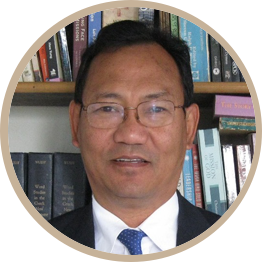October 2021 / 73rd
1. CONCEPTUAL FRAMEWORK FOR DEVELOPING INDIGENOUS THEOLOGY
[David Gyeong Han]
For the past centuries, the Christian mission of North American Indigenous peoples and other indigenous groups rendered awkward consequence that ‘the relationship with their Creators required them to reject their own identity and adopt a European one. The effect was to leave Indigenous people in self-doubt and self-rejection (Leblanc 2014: 512). Inadvertently, the mission caused social and cultural assimilation more than spiritual transformation (Knockwood 1992: 134). This setback was not a problem of distant history; but, the twentieth-century mission utilized the same mission model…
2. DISPERSION, DIVERSITY AND BEYOND: Exploring the Roots of Mission and Migration in Genesis 1-12
[Ted Rubesh]
This paper is an attempt to explore the nexus of the themes of creation and the nations, and mission and migration in the first half of the book of Genesis. It seeks to discuss God’s creative and redemptive purposes in the multiplication and spread of “nations” to the ends of the earth, and closes with a summary of the culmination of those purposes at the Lord’s return…
3. THE TOWER OF BABEL REVISITED
[Wati Longkumer]
We know the story of the Tower of Babel as the place where God “confused” the people – “sons of Adam”- and scattered them abroad, and the Pentecost when God sent the Holy Spirit and the people from “every nation under heaven … each one heard their own language being spoken.” In this article, I wish to study an underlying theme that has a link in these two passages and with further implications affecting even the contemporary missions…
4. THE BEGINNINGS OF HOLINESS TEACHINGS IN JAPAN
[Esther Maxton]
Holiness teachings in Japan came in the late 19th century with the arrival of a Church Missionary Society (CMS) missionary Barclay Buxton from the United Kingdom. Christianity had arrived at the shores of Japan three centuries earlier, in the mid 16th century, with a Jesuit missionary Francis Xavier. Soon Christianity flourished, however, in the early 17th century, the Tokugawa government forbid Christianity fearing foreign interference in Japanese politics through Japanese Christians…
5. EMOTIONAL INTELLIGENCE IN MISSIONS
[John Edmiston]
Good emotional management is a highly needed commodity in missions work. Without it we can unintentionally make a complete mess out of our service for God. One emotional explosion at the wrong moment can be held against us for a long time to come and we are often judged by others on how we handle our emotions. Many very productive Christian workers have had to leave the ministry because they just could not manage their emotions well and this marred all their relationships. This skill is now called “emotional intelligence” and accounts for 85% of the difference between successful and unsuccessful professionals (if their IQ is about the same)…








